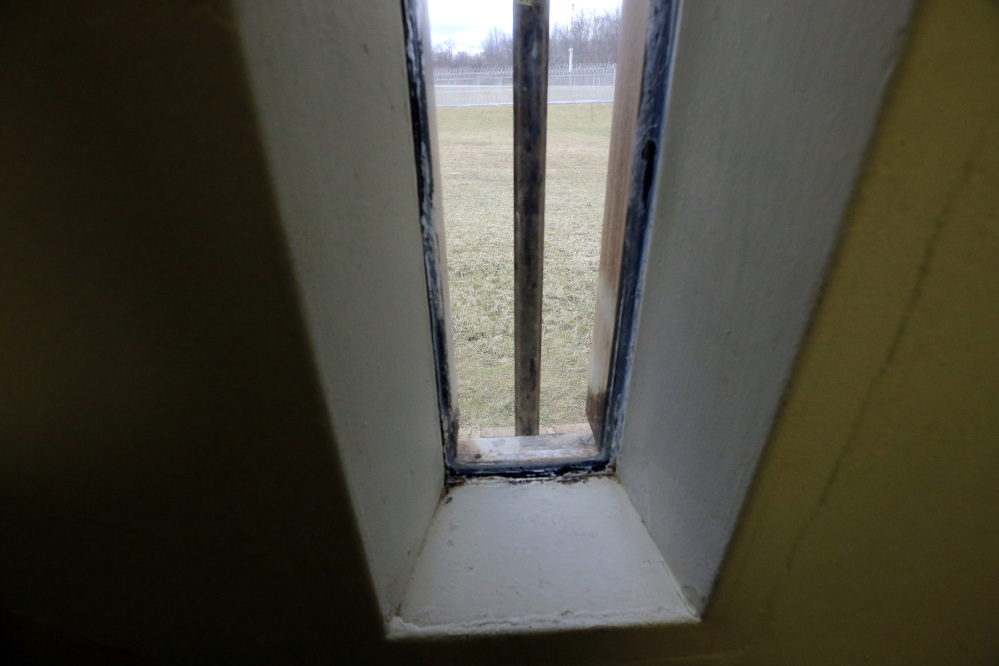PROVIDENCE, R.I. — A movement to curb the use of solitary confinement in Rhode Island prisons has found an unlikely ally in a former warden who spent 33 years working at the state’s prison complex.
Roberta Richman, who retired from the Department of Corrections in 2012, has slipped into a new role championing a bill that would limit the isolation of inmates to no more than 15 days at a time.
The state typically keeps about 300 inmates confined in what it calls restrictive housing – some for a short time and others for months and years. They rarely get out of their small cells except for 1-hour breaks at least three days a week to exercise and shower.
“Too many inmates come out of isolation angrier and more dangerous than they were when they went in,” Richman told a House Judiciary Committee hearing this week. She told senators a week earlier that her years in the system made it “painfully clear to me that inmates who are subjected to long-term isolation often suffer irreparable harm.”
Richman is so well-regarded by Rhode Island leaders that a street outside the women’s prisons in Cranston was renamed Roberta Richman Way.
But her advocacy is up against what she describes as “enormous resistance” from her former colleagues: prison administrators and the correction officers union. They told lawmakers the legislation is based on a poor understanding of how prisons are managed and would take away their ability to keep people safe.
Administrators say they use confinement to punish and deter bad behavior committed inside the prison. Other inmates are confined if they’re deemed a chronic safety threat. They argued that the bill’s restrictions tie their hands.
Richman agreed that temporary confinement can be an important tool but said it “loses its meaning and actually becomes quite tragic” when used for too long. She said she struggled before accepting a request by state Rep. Aaron Regunberg, the Providence Democrat who introduced the bill, to speak out.
Hours-long hearings in the state Senate Judiciary Committee last week and the House on Wednesday night brought emotionally charged testimony from former inmates and the families of current inmates speaking about arbitrary judgments that placed them in long-term confinement and its psychological toll.
Richard Ferruccio, president of the Rhode Island Brotherhood of Correctional Officers, said he was frustrated after hearing what appeared to be many false or misleading stories alleging abusive conditions. He also questioned why Richman, if she was so concerned about confinement practices, didn’t try to make changes during her decades of leadership.
“She’s a nice lady. I disagree with her on her philosophy,” Ferruccio said. “The evidence and the facts support that what we’re doing is not abusive. It is not solitary confinement.”
Richman said she did privately express concerns over the years to A.T. Wall, director of the state Department of Corrections, and noted that he allowed her to push for other reforms. Richman spent a decade as warden of the women’s prisons in the 1990s and was later promoted to be the department’s assistant director for rehabilitative services.
“It’s not a system that accepts change easily,” she said. “I pick and choose my battles.”
Copy the Story LinkSend questions/comments to the editors.



Success. Please wait for the page to reload. If the page does not reload within 5 seconds, please refresh the page.
Enter your email and password to access comments.
Hi, to comment on stories you must . This profile is in addition to your subscription and website login.
Already have a commenting profile? .
Invalid username/password.
Please check your email to confirm and complete your registration.
Only subscribers are eligible to post comments. Please subscribe or login first for digital access. Here’s why.
Use the form below to reset your password. When you've submitted your account email, we will send an email with a reset code.